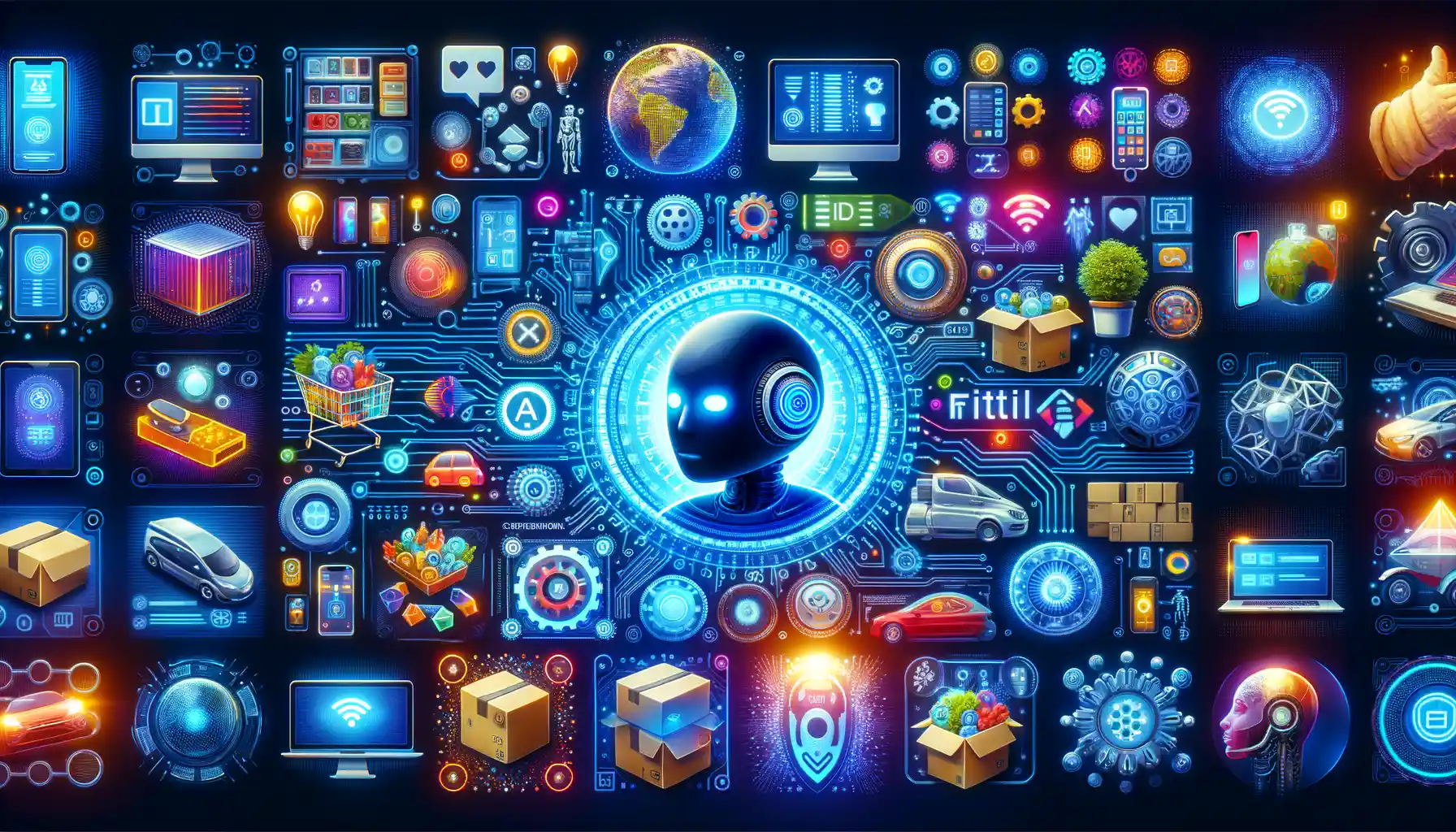How Artificial Intelligence is Transforming E-commerce
Revolutionizing How We Shop Online
Imagine walking into your favorite store, and the shopkeeper already knows what you want, offers suggestions tailored just for you, and checks you out in seconds without any hassle. That’s the magic that Artificial Intelligence (AI) brings to e-commerce—digitally, of course. AI is turning online shopping into an almost personal experience that makes clicking “Add to Cart” feel like chatting with an old friend who knows your taste.
Take personalized recommendations, for example. Remember binge-watching Netflix because “you might also like this”? AI is doing the same for your shopping cart. By analyzing data like browsing habits, past purchases, or even what you’re lingering on for a second too long, it serves up exactly what you’re most likely to fall in love with. It’s like having a best friend who always nails your style.
Streamlining the Shopping Journey
AI also shines when it comes to making life easier for shoppers:
- Chatbots: Forget waiting on hold for customer service. AI chatbots handle queries faster than you can say “tracking number.”
- Visual search: Imagine snapping a picture of a dress you adore. AI finds it—or something stunningly similar—in seconds.
And let’s not overlook the subtle genius of dynamic pricing. While you’re asleep, AI adjusts prices based on demand, competition, and trends, ensuring that what you pay is fair (or at least competitive). It’s like haggling at a market, only silently in cyberspace.
This isn’t just shopping; it’s a curated experience powered by data and innovation. AI doesn’t just keep pace with the future—it races ahead to redefine how we choose, buy, and own.
Key AI Technologies Driving Online Retail Evolution

The Game-Changing Role of Machine Learning
Imagine walking into your favorite store, and the shelves seem to magically rearrange themselves to match your exact taste. That’s essentially what machine learning algorithms are doing in online retail! These clever systems analyze every click, scroll, and purchase to create eerily accurate recommendations. Think Netflix suggesting your next binge-worthy series, but for everything from shoes to kitchen gadgets.
But it doesn’t stop at recommendations. Machine learning powers dynamic pricing too. Ever noticed how flight prices fluctuate within hours? E-commerce businesses use similar strategies to optimize profits while offering you the sweetest deals when you’re most likely to click “Buy Now.”
- Image recognition: Instantly searching products by uploading a photo, because typing “blue dress with ruffles” feels like guesswork.
- Fraud detection: Spotting shady transactions faster than Sherlock Holmes solves a case.
Natural Language Processing: The Chatbot Whisperer
You know that oddly polite, super-helpful chatbot popping up on your favorite online shop? It’s powered by Natural Language Processing (NLP)Benefits of AI Integration in Online Retail
Imagine walking into your favorite store where every aisle is tailored just for you. That’s exactly what integrating AI in online retail feels like—only better. With AI, retailers can dive deep into your preferences and behaviors to create an experience that feels less like shopping and more like having a personal assistant at your fingertips. Think of those spot-on product recommendations when you scroll through a store. That’s no accident. AI observes what you browse, click, and even linger on, crafting suggestions that leave you thinking, “How did they know?” From suggesting the perfect fall boots to reminding you it’s time to restock your skincare favorites, it’s effortless yet impactful. Gone are the days of feeling like another faceless customer. With AI, online retail amplifies convenience while making you feel genuinely *seen*. Can we say magic meets science? Here’s the part we don’t always notice but can’t live without: behind every smooth shopping experience is the hard work of algorithms crunching millions of data points. AI ensures packages arrive faster (because who likes waiting?), predicts demand spikes before the chaos hits, and reduces waste by managing stock more accurately. Picture this: a retailer anticipating that mustard-yellow sweaters will be the breakout trend of the season because AI pointed to patterns in social media conversations. Within weeks, racks are stocked, and your wardrobe gets the update it didn’t even know it needed. The result? Happier shoppers and a planet spared from overproduction. AI doesn’t just revolutionize; it redefines efficiency, transforming “good enough” into exceptional. Artificial intelligence may feel like a magic wand for online retailers, but let’s face it – it’s not all smooth sailing. Adopting AI comes with its own set of hurdles, and ignoring them would be like trying to drive a car with the check engine light on. One of the biggest challenges? Data dependency. AI thrives on data, but what happens when that data is riddled with gaps or biases? You can’t expect a gourmet meal if your ingredients are spoiled. Then there’s cost. Implementing high-tech AI solutions can drain budgets faster than a flash sale empties inventory. Small businesses, in particular, might feel like they’re trying to scale Mount Everest without enough oxygen. And don’t forget about the human factor. Employees often worry that their roles might be swallowed up by algorithms. Will a chatbot replace your customer service team? Not necessarily, but anxieties like these create resistance to change. AI also forces us to confront some tough ethical questions. For instance: The stakes are high. Missteps in these areas can lead to tarnished reputations, eroded trust, and even legal consequences. Retailers must ask themselves: Is the pursuit of profit worth compromising on ethics? Imagine walking into a store where every shelf is stocked with what you love, every recommendation feels like it reads your mind, and checkout happens before you even think about it. That’s the future of online retail with AI-driven personalization. Advanced algorithms will go beyond suggesting products; they’ll craft entire shopping experiences tailored to individual preferences. Here’s what we’ll likely see: This isn’t just personalization—it’s intuition, coded. The future isn’t just smart; it’s increasingly conscious. As shoppers grow more eco-aware, AI innovations will focus on sustainability. Tools like carbon footprint trackers, powered by machine learning, could allow customers to see the environmental impact of their purchases. And transparency? It’s on the rise. Expect retail platforms to use explainable AI to detail how recommendations are made—building trust while reshaping buying habits for the better.
Revolutionizing Personalization for Shoppers
Seamlessly Streamlining Operations Behind the Scenes
Challenges and Ethical Considerations in AI Adoption

The Rocky Road of AI Integration
Walking the Ethical Tightrope
Future Trends and Innovations in AI for Online Retail

AI-Powered Personalization: A Shopper’s Dream
The Role of AI in Ethical Consumerism
